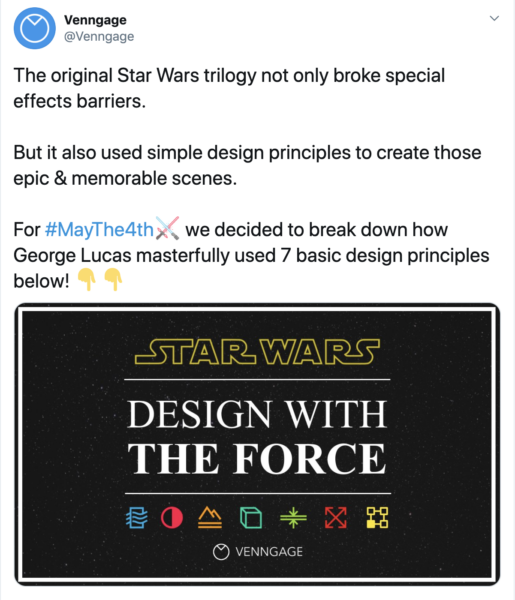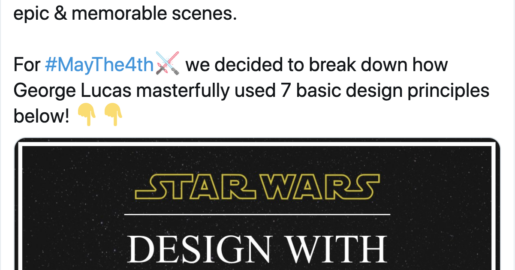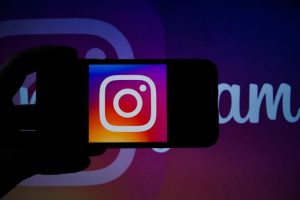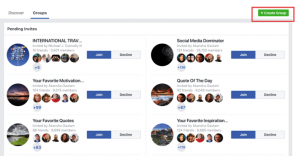
StartupStockPhotos / Pixabay
Small and medium businesses need a strong social media strategy to stand out in overcrowded market places. Having a good social presence can help build loyalty in customers, authority in markets, and hype for your brand. Social media is also a powerful PR tool, with journalists often asking for story tips online.
But having a social media presence alone isn’t enough, you need to have a good and solid plan for how to best utilize your platforms.
Creating a social plan allows you to think about your brand messaging ahead of time, be prepared for social media holidays and other big events that can have an impact on your business, and throughly plan advertising and marketing campaigns.
Knowing that on the 4th May, for example, the world will be Tweeting #MayThe4thBeWithYou will give you plenty of time to pull together a relevant social media campaign to match.

Venngage’s Star Wars Day Design content, planned well in advance
Planning your social media calendar in advance also allows you to schedule your posts in advance, taking the ‘on the day’ pressure of typos and broken links out of the time sensitive equation. Hootsuite is one of the most popular social scheduling platforms but there are alternatives to help you schedule your social content in advance. Having the ability to check over scheduled content, make sure the links work and the UTMs are in place, is a game changer in social media marketing.
But what do I mean by a robust social media plan?
I mean it needs to go beyond surface level planning. Simply knowing when to Tweet about Star Wars is one thing. Knowing exactly the audience y0u want to target, the hashtags they’ll be using, and the content they’re most likely to engage with is another.
If you’re creating your social media plan in a spread sheet, it’s worth having a tab for each platform. That way you can assess your content on each platform as a whole and making sure that you’re appealing to as many of your followers as possible.
Not everybody is going to love every Instagram post you make, but they might every one in three. If your business has multiple audiences make sure that you’re creating content for them all.
Part of a robust plan is also thinking about how to leverage your social media when things go wrong. I’ve already written for Business 2 Community about the importance of a Crisis Communication Plan, but it’s worth mentioning again. Be prepared to know how to communicate big changes to your business quickly. Have a plan of what to say if things go wrong. You don’t necessarily need the Tweet apologizing for an entire cargo ship of stock going AWOL, but it’s worth thinking about what sort of communication would be right in a crisis situation. Would you release a press statement on your website and Tweet a link, for example? Or would you want to spend time engaging with customers individually on social media?
And at the end of the day, it’s ok if you don’t stick to your social media plan 100%. Things change, better ideas for Facebook posts comes along. Industries grow and shift quickly, following new social trends. A social media plan doesn’t take away your ability to be reactive, it just gives structure to your reactivity to ensure that you maintain consistency.
Digital & Social Articles on Business 2 Community
(38)
Report Post






